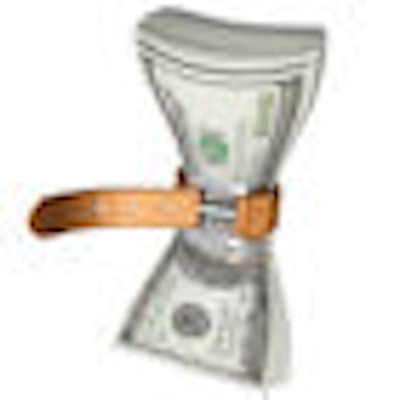
Washington Dental Service's (WDS) CEO James Dwyer has offered a qualified apology for saying that dentists should work more to make up for deep reimbursement cuts the company made last year to some 4,000 dentists in the plan's network.
Dwyer, who earns $1.2 million a year, made the controversial comments during an interview with television station King 5, where he suggested that dentists could make up lost revenue by working harder.
"Number one, they could start working five days a week," Dwyer said, adding that dentists typically work three and a half days a week.
“They could start working five days a week.”
— James Dwyer, CEO, Washington Dental Service
In a letter posted on its website, the Washington State Dental Association (WSDA) called Dwyer's comments "outrageous and disrespectful."
Clinical time is only part of what dentists do, noted WSDA president Rod Wentworth, DDS. In addition to seeing patients, most dentists spend many hours managing the administrative responsibilities of owning a small business and work to stay current with the technical and scientific advancements in dentistry.
For example, Dr. Wentworth told DrBicuspid.com that he puts in between 10 and 11 hours during each of the four days he sees patients. And on his day off?
"I'm going to Costco to resupply the office. I'm coming in fixing things at the office. I'm doing laboratory work I couldn't do during the week to prepare for the next week. I'm doing computer and network stuff."
In addition, dentists are on call 24/7, Dr. Wentworth added.
"At Christmas a few years ago I got a call from a patient who had a sledding accident, and I came down here to see him," Dr. Wentworth recalled. "That's our obligation; that's what we do."
In a post to WDS's Facebook page, Dwyer said his comments were taken out of context.
"I can certainly understand my comments have upset some member dentists," he wrote.
But in a separate post on Facebook, the group Concerned Dentists of Washington State wrote, "Dwyer's arrogance came through loud and clear."
Far-reaching rate cuts
Dwyer and other WDS executives gave themselves 35% to 45% pay increases over the last five years and cut patient care reimbursements, all while operating as a nonprofit membership organization, Concerned Dentists added.
Executive pay totaled $5.8 million in 2010, and WDS was exempt from paying federal taxes on nearly $14 million in net income in 2010, according to another King 5 news story.
Last June the WDS-- a member of the Delta Dental Plans Association -- cut its reimbursement rates by 15%. The reduction applies across the board to Delta's Premier fee-for-service network for every dentist that participates with WDS.
The decision to reduce reimbursements rates was prompted by the ongoing economic crisis and growing competition from other insurance providers, including MetLife, United Concordia, and Aetna, according to Ron Inge, DDS, dental director and vice president of professional services for WDS.
WDS has also cut nonmember reimbursement rates by as much as 60%, according to Dr. Wentworth. In areas like Olympia, where state employees with WDS coverage can make up about 90% of a dentist's patient base, practitioners cannot remain solvent, he said.
"Until the rate cuts, dentists were willing to take the hit -- especially when they were longtime patients -- and patients were willing to pay more to go out of network," Dr. Wentworth explained. "After the cuts, it's really hurt those patients, because they're being squeezed to break their relationship with their dentist to instead go to a member dentist. I think it's hurt the doctor/patient relationship."
And reimbursement for some procedures is now so low that dentists may no longer offer them, he added. For example, the price of gold is so high that where dentists may have recommended gold crowns in the past, they may suggest different options now because of low reimbursements, according to Dr. Wentworth.
"In some cases they may pay you more to do less precious metal crowns instead of a gold crown, so there's also a financial incentive for dentists," he said.



















